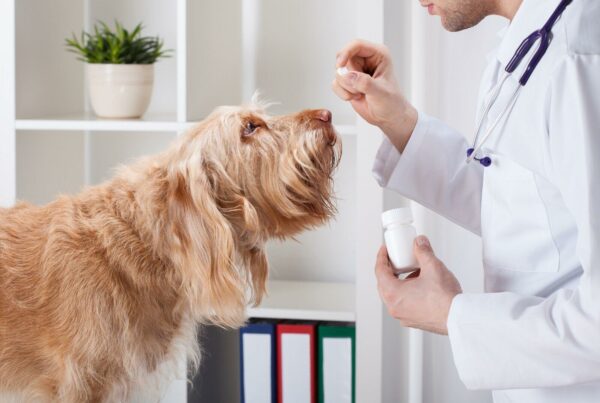Pet insurance can help you pay for veterinary care if your pet is ill or injured. Best Pet insurance companies are not uncommon to pay out in the event of your pet’s death, disappearance, harm to another person, or property damage. When it comes to cat and dog insurance coverage, there has been analyzed numerous policies and has received thousands of customer service ratings from policyholders.
Veterinary fees and other medical expenditures are covered by best pet insurance. Between £1,000 and £15,000 can be covered for vet fees. You may find an in-depth look at the ins and outs of pet insurance policies here.
Most pet insurance policies include coverage for the following expenses in addition to vet visits:
Accidental or Ill-Advised Death
Pet insurance will reimburse you for the cost of the animal’s purchase or its market value if it dies, whichever is greater.
There is usually an upper age restriction on pet insurance coverage, usually between 8 and 11 years for cats and 5 to 9 years for dogs, beyond which insurers will not pay out, or you will be responsible for some of the costs.
Cover for a Missing Pet.
Most pet insurance policies often cover posters and a reward for your pet’s safe return.
Lawsuits against third parties
Dog owners should be covered if their pets injure someone or damage someone else’s property.
Legal fees, expenses, and the claimant’s expenses are all covered by this.
Indemnity for journeys abroad
Most pet insurance policies will cover your pet’s medical expenses if they get sick or are injured while traveling. Suppose you have to cancel your vacation because your pet gets critically ill just before you’re about to leave. You may get compensation from your insurance company for your lost travel and lodging expenses.
The Cost of Boarding Cats and Dogs
Suppose you cannot care for your pet while in the hospital; most pet insurance providers will cover the cost of boarding your pet. At the very least, you’ll be in the hospital for two to four days.
Death through euthanasia, cremation, and burial. Your insurance coverage may cover the cost of your pet’s final resting place, cremation, or burial.
“Coverage for Teeth”
Most pet insurance companies will pay for your pet’s dental care. Some insurance policies only cover dental treatment that results from an accident and does not cover dental costs that result from a medical condition. Those that normally require your pet to have a dental check-up once a year as a policy condition.
Pet Insurance Policies do not Cover What You Might Expect.
The following are excluded from pet insurance policies: To ensure you have the coverage you require, thoroughly review the policy’s terms and conditions.
A History of Disease or Injury:
Before signing up for pet insurance coverage, your pet had a pre-existing medical condition. It can be divided into two groups:
Your pet’s recurring health issues, such as a heart ailment or hip dysplasia, are chronic.
Conditions that have occurred in the past but no longer affect your pet, such as healed tissue damage or diseases.
The existing conditions are often not covered by pet insurance policies, but this isn’t always the case. If your pet hasn’t needed treatment for these conditions in the past year, they may be covered (for instance, for two years).
An Interval of Waiting
They may not cover it for illnesses that develop within the first 10–14 days of your pet insurance contract. If you are changing insurance providers and don’t want a gap in your coverage.
Prevention and Regular Treatment
Services including vaccines, spaying/castration, flea/tick/worm/tick treatments, hair grooming/clipping, and dental care are frequently left out of pet insurance plans since they are considered elective procedures.
Giving Birth / During Pregnancy
Pet insurance coverage may include exclusions for expenses related to pregnancy, birth, and the care of any offspring.
Insurance for pets comes in a wide variety of forms.
Insurance for your pet for the rest of your life
Pet insurance policies that last a lifetime are the most popular and comprehensive. As the name implies, they’ll pay for therapy for the rest of your pet’s life, but annual limits exist.
There are several ways that policies that last a lifetime can be implemented. For example, annual insurance covers vet bills up to a certain sum each year, say £5,000. As a result, the insurer would pay up to £5,000 per year in this situation.
Per-condition, per-year coverage is another option for a life insurance policy. For example, if your cat has diabetes, you’d be able to claim up to £2,000 a year under this plan.
For example, a policy that pays a fixed annual sum (e.g., £10,000) with a lesser annual benefit for a single condition (e.g., £2,000) is available. So, if your pet needed treatment for five unrelated ailments, you could submit up to five claims for up to £2,000 each year using those statistics. Still, you would only receive £2,000 towards a sequence of expenses associated with treating one sickness.
Any time a policy’s cap is raised, the premiums go up accordingly. As long as you have lifetime coverage, the insurance company will continuously contribute toward the cost of your pet’s conditions, no matter the cap.
Pet Insurance That Doesn’t Last a Lifetime
In contrast, non-lifetime coverage is less comprehensive and excludes certain ailments once you’ve exhausted your claims limit.
Per condition and time-limit per condition are the two most common types of non-lifetime insurance.
When a condition’s limit has been reached, the insurer no longer pays for that condition’s treatment.
For example, suppose your cat Mittens suffers an eye infection, and your eye infection per condition cover maximum is £5,000. In that case, the insurer will no longer pay claims connected to eye infections after that level is reached, even if you renew your insurance policy.
There will be a monetary and a time restriction on pet insurance coverage before the condition is excluded, usually 12 months.
Pet Insurance Only for Accidents.
The most basic and least expensive sort of pet insurance is accident only. It does not cover illnesses, as the name implies, but simply injuries.
You can get a specific quantity of money for each unintentional injury to assist cover your pet’s medical expenses, but this insurance often only pays out after 12 months.
photo cred: https://unsplash.com/photos/PXtlMl39fV0




